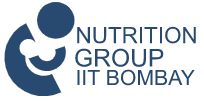Authors: Neha Adsul, Sarthak Gaurav, Priya Rampal Abstract: Research has shown that maternal health affects later-life outcomes of children. Using data from the Young Lives survey in Andhra Pradesh and Telangana, this article shows that antenatal care has an impact on the cognitive scores of children during mid-childhood, with scores Read More …
Category: Research
Seasonal Variations in Childbirth – A Perspective from the HMIS Database (2017–20)
Nambiar, A., Choudhury, D. R., & Agnihotri, S. B. (2022).
The analysis of seasonal variations in births in India, using the Health Management Information System data for three pre-pandemic years, reveals a distinct trend of peaking of births during the August–October window and dips during February–March. This trend attenuates as we move from the north-western regions towards the south-eastern regions. These findings will help scholars, policymakers, and the health system to prioritise the delivery of maternal and child services.
Spatial dependency in child malnutrition across 640 districts in India: need for context-specific planning and interventions
Vennam, T. R., Agnihotri, S. B., & Chinnasamy, P. (2022).
Child malnutrition remains a matter of concern in India as the current levels are high and the decline is slow. National Family Health Survey (NFHS–4, 2015-16) data, for the first time, provides credible, good quality data at district level on social, household and health characteristics.
Transformation in culinary behaviour during the COVID-19 pandemic: In-depth interviews with food gatekeepers in urban India.
Menon, L., Choudhury, D.R., Ronto, R., Sengupta, R., Kansal, S., & Rathi, N. (2022).
The present qualitative study provides first-hand information about the factors influencing dietary modifications and changes in culinary behaviours during the COVID-19 pandemic in urban India. The study included 34 female household food gatekeepers from Mumbai, India. Template Analysis Technique was used to generate themes and sub-themes from the interview data.
Refresher Training through Quiz App for capacity building of Community Healthcare Workers or Anganwadi Workers in India
Majhi, A., Joshi, A., Agnihotri, S. B., & Mondal, A. (2021, May).
An android based quiz app was designed, following AWWs training modules’ content and need assessment results. The study investigates the quiz app’s effectiveness and compares it with conventional classroom instruction, with a group of AWWs, and discusses ways to make it an adequate substitute.
Supporting healthy growth in infants in low-resource settings in Mumbai, India
Supportinghealthy growthin infants inlow-resourcesettings inMumbai, India By Rupal Dalal, Shruthi Iyer, Marian Abraham and Lahari Yaddanapudi Location: Mumbai, India What we know: Maternal undernutrition, low birth weight and growth failure in early infancy contribute to wasting, stunting and underweight. What this article adds: The Foundation for Mother and Child Health (FMCH) is a Read More …
A qualitative assessment of barriers and facilitators to implementing recommended infant nutrition practices in Mumbai, India
Authors: Priyanka Athavale, Kristin Hoeft, Rupal M. Dalal, Ameya P. Bondre, Piyasree Mukherjee & Karen Sokal-Gutierrez Abstract Background Childhood malnutrition has been a longstanding crisis in Mumbai, India. Despite national IYCF (Infant Young Child Feeding) guidelines to promote best practices for infant/toddler feeding, nearly one-third of children under age five are stunted or underweight. To improve Read More …
Framework for enhancing maternal nutrition: addressing under nutrition in tribal children inhabiting Central India
Authors: Suveena Doddalingannavar, Ayushi Jain and Satish B. Agnihotri Abstarct: Our world is transitioning into a new generation of governance with much greater emphasis on targeted actions and mission mode programmes to achieve global sustainable goals (SDG). India with its Twenty-point programme which directly maps national and state programmes to global Read More …
Minimum Diet Diversity and Minimum Meal Frequency – Do They Matter Equally? Understanding IYCF Practices in India
Authors: Ayushi Jain, Muneer Kalliyil, Satish Agnihotri Abstract Objectives Infant and Young Child Feeding practices, mainly, complementary feeding in children between 6 months and two years of age, is found to be sub-optimal and emerge as the weakest link in improving child nutrition outcomes in India. Minimum Acceptable Diet (MAD), comprising of Read More …
Health promoting functional lipids from microalgae pool: A review
Authors: Richa Katiyar, Amit Arora Abstract Current market trend and consumer’s growing demand for healthy natural products have strengthened microalgae as an emerging source of nutrient rich natural food supplement. The constituents of food play a critical role in evolution of non-communicable disease and malnutrition. In this regard, microalgae based food products own positive Read More …
